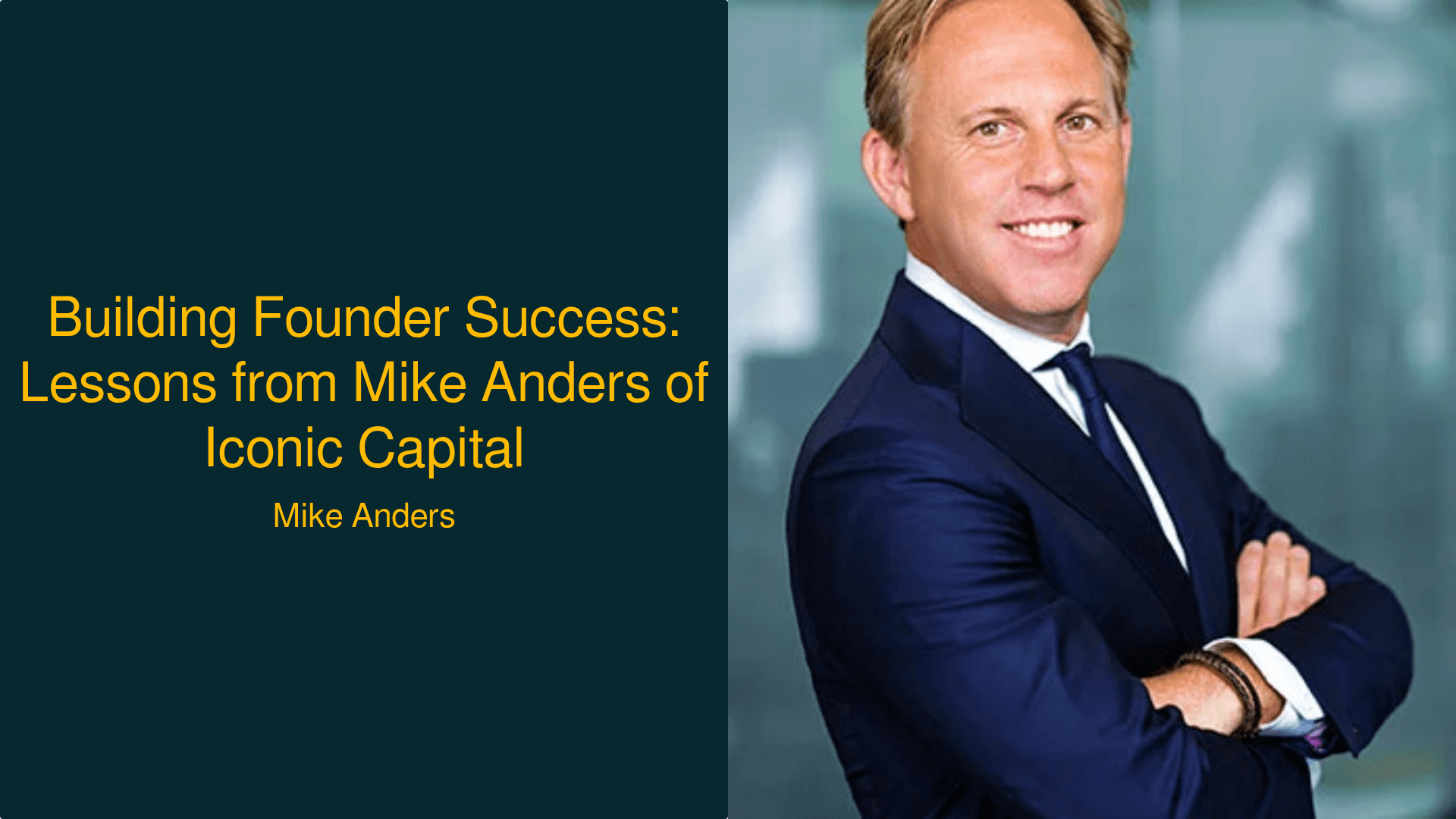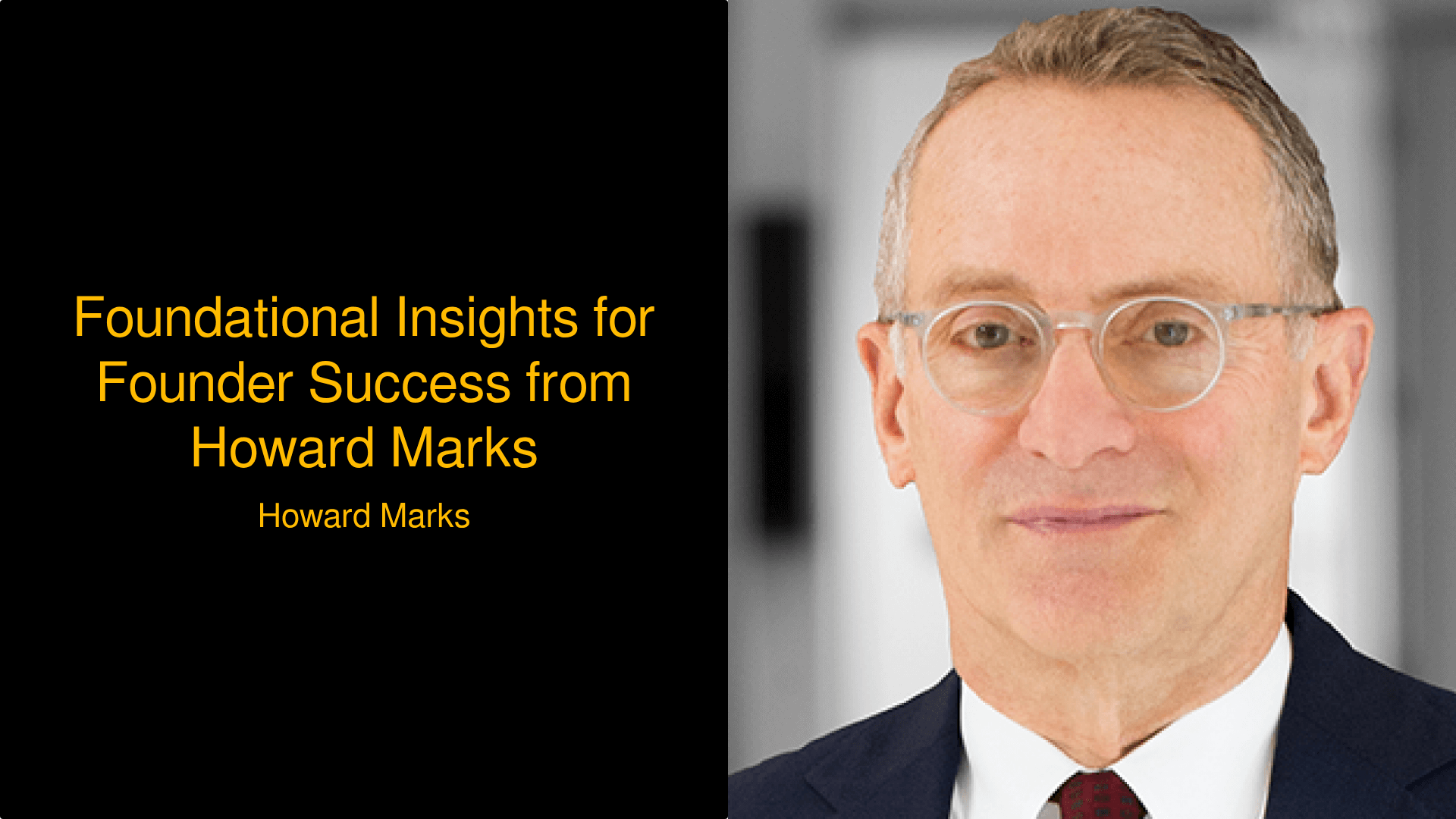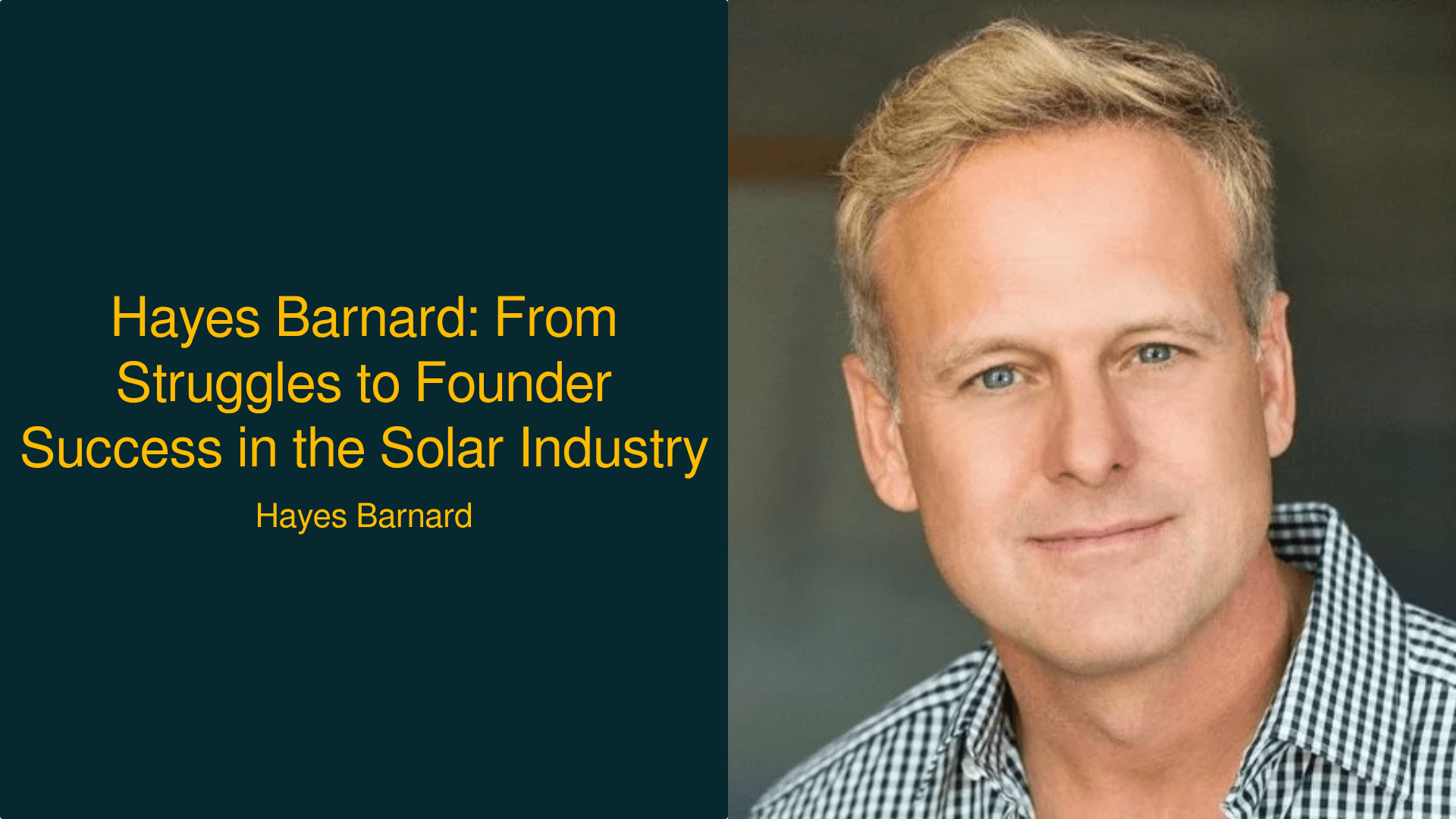Founder Success Strategies from Thomas Braziel: Insights on Distressed Investing
Explore actionable insights on founder success and distressed investing from Thomas Braziel’s interview.

Founder Success Strategies from Thomas Braziel: Insights on Distressed Investing
In the world of entrepreneurship, the path to founder success is often fraught with challenges, especially when navigating the complexities of distressed investing. Thomas Braziel, a seasoned investor and expert in the field, shares his invaluable insights in this episode. With a unique background rooted in bankruptcy law and a keen understanding of market dynamics, Braziel provides a roadmap for founders looking to capitalize on distressed assets. Throughout our conversation, we explore actionable strategies, frameworks, and the lessons learned from his experiences in distressed investing. This article aims to distill those insights into practical takeaways for entrepreneurs and business leaders seeking to enhance their investment acumen and achieve founder success.
Understanding Distressed Investing: The Basics
You’re almost like value investing. And the toolkit is, you know a lot about the legal process. — Thomas Braziel
Why it matters: Understanding the fundamentals of distressed investing is crucial for founders and entrepreneurs. Braziel emphasizes the importance of knowing both the legal landscape and the underlying value of distressed assets. This knowledge can significantly impact business outcomes, as investing in distressed assets often comes with high risk but can also yield substantial rewards. For instance, historical data shows that some of the best returns in distressed investing have come from financial services bankruptcies and Ponzi schemes, illustrating the potential for significant upside if approached correctly.
How to Apply This
- Educate yourself on bankruptcy laws and the legal processes surrounding distressed assets.
- Analyze the underlying value of distressed companies and assess the risks involved.
- Develop a strategy that balances potential upside with acceptable risk levels.
- Network with experienced investors and firms to gain insights and access to deals.
- Stay informed about market trends and economic conditions that may affect distressed assets.
The Steak and Sizzle Philosophy
You always want like the steak and the sizzle. — Thomas Braziel
Why it matters: Braziel’s ‘steak and sizzle’ philosophy highlights the need to identify both the fundamental value (‘steak’) and the potential upside (‘sizzle’) when investing in distressed assets. This approach not only minimizes risk but also maximizes the potential for returns. For example, when investing in distressed claims, securing a solid asset while having the potential for future appreciation can lead to outsized returns, as seen in past investments.
How to Apply This
- Identify assets with inherent value that can be acquired at a discount.
- Assess the potential for appreciation in value based on market conditions.
- Create a detailed analysis of both fundamental and speculative aspects of the investment.
- Develop a risk management strategy that accounts for both the steak and the sizzle.
- Regularly review and adjust your portfolio to capitalize on emerging opportunities.
Building a Distressed Investment Strategy
You can be very selective. You can literally do nothing in a six month period. — Thomas Braziel
Why it matters: Braziel emphasizes the importance of a selective approach in distressed investing. This strategy allows investors to focus on high-quality opportunities rather than being forced to invest due to market pressures. By being patient and selective, founders can avoid poor investments that may lead to losses. Successful distressed investing requires a keen eye for potential and the discipline to wait for the right opportunities.
How to Apply This
- Define your investment criteria and stick to them.
- Conduct thorough due diligence on potential investments.
- Build relationships with industry experts and other investors to gain insights.
- Be prepared to walk away from deals that do not meet your criteria.
- Continuously monitor the distressed market for shifts in opportunity.
The Emotional Toll of Distressed Investing
You’re hearing people’s life stories. This will be someone’s entire life’s work. — Thomas Braziel
Why it matters: Investing in distressed assets often involves dealing with emotionally charged situations. Founders must approach these investments with empathy and respect, recognizing the human impact of corporate failures. This emotional toll can affect decision-making, and it’s vital for investors to balance empathy with rational investment strategies. By understanding the emotional landscape, founders can make more informed and compassionate investment choices.
How to Apply This
- Practice empathy when dealing with distressed companies and their stakeholders.
- Create a support network of like-minded investors to share experiences and strategies.
- Develop a personal framework for managing emotional responses to investment challenges.
- Engage in discussions about the human aspects of distressed investing with peers.
- Reflect on your experiences and learn from the emotional aspects of investing.
Lessons from the FTX Case
You have to do the right thing whether someone likes it or not. — Thomas Braziel
Why it matters: The FTX case serves as a cautionary tale for investors and entrepreneurs alike. It highlights the importance of ethical decision-making and the potential consequences of neglecting due diligence. Founders must learn to navigate the complexities of the investment landscape while maintaining integrity and transparency. This case underscores that even in the world of high-risk investments, ethical practices are essential for long-term success.
How to Apply This
- Establish a clear ethical framework for your investment decisions.
- Conduct thorough due diligence on potential partners and investments.
- Maintain transparency with stakeholders about risks and strategies.
- Learn from past mistakes and integrate those lessons into future practices.
- Prioritize ethical decision-making even in high-pressure situations.
Conclusion
The insights shared by Thomas Braziel in this interview provide a comprehensive overview of the strategies and frameworks necessary for achieving founder success in the realm of distressed investing. By understanding the fundamental principles, embracing the steak and sizzle philosophy, and maintaining an ethical approach, entrepreneurs can navigate the challenges of this complex landscape. The emotional toll and the lessons learned from high-profile cases like FTX serve as valuable reminders of the importance of integrity in business. As founders, the journey to success is not only about financial gains but also about making thoughtful and principled decisions. To truly excel, entrepreneurs must commit to continuous learning and adapt their strategies to the ever-evolving market dynamics. By doing so, they can position themselves for long-term success and make a meaningful impact in their industries.


